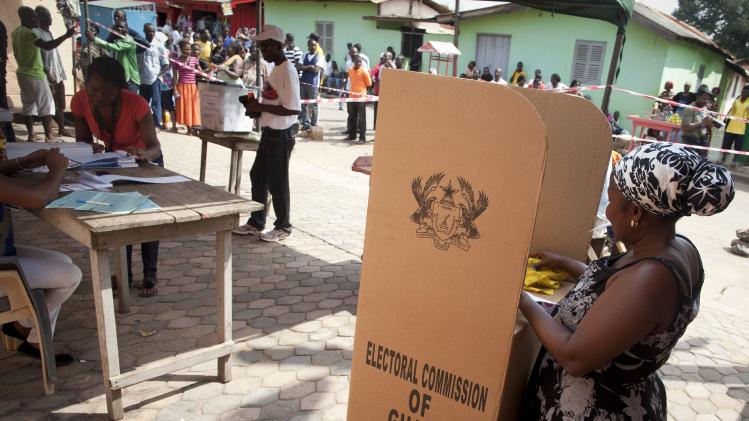EC will abide by court ruling on limited voter registration
The Electoral Commission will respect the court’s ruling on the pending limited voter registration exercise, Deputy Chairman in-charge of Operations, Samuel Tettey has said.
He said due to a court injunction, the Commission had suspended indefinitely the limited voter registration exercise, which was scheduled to begin from Friday, June 7 to Thursday, July 27 in all its district offices and 1,573 selected electoral areas the across the country.
He said the 1,573 selected electoral areas, which used biometric verification registration (BVR) kits for the exercise, constituted about 25 percent of the electoral areas nationwide.
He said the suspension of the exercise was due to a pending Court injunction seeking to restrain the Commission from holding the limited voter registration exercise.
He explained that the Commission had adequately prepared for the conduct of the limited voter registration exercise, which formed part of their preparations towards the conduct of the referendum on the election of Metropolitan Municipal and District Chief Executives (MMDCEs) and the District Level Elections (DLEs) slated for December.
“The Commission has actually prepared very well, all logistics needed for the exercise has been procured. We have concluded training of all officials who are to take part in the registration exercise,” Mr Tettey stated over the weekend in his presentation at a multi-stakeholder Conference on the upcoming referendum on the election of MMDCEs.
The workshop was organised by the Ghana Catholic Bishops’ Conference with funding from the Konrad Adenauer Stiftung.
Mr Tettey said the Commission had taken the necessary steps to prepare towards the successful conduct of the December referendum on the election of MMDCEs and the DLEs.
The Commission he noted was also being guided by the Constitutional threshold of 40 percent, who were expected to vote at the referendum and 75 percent who would vote yes in favour.
He said the Article 45 of the Constitution gives the Commission the mandate to educate the people on the electoral process and its purpose; stating that “in view of this, the Commission would undertake vigorous public education and sensitization of the public and the voters”.
He said they would hold more public engagements on the referendum with stakeholders such as civil society, the media, persons living with disabilities and faith-based organisations.
Mr Tettey noted that he was assuring Ghanaians that the Commission would ensure that the referendum would be a success.
“We wish to assure the good people of Ghana that the Commission is prepared and is leaving no stone unturned to conduct a peaceful and orderly election towards the referendum on the election of MMDCEs, as well as the DLEs,” he said.
“One challenge that we are anticipating is that previously, because we only have the DLEs, which is for the election of Unit Committee Members and the Assembly Members, however, this election is going to be added by one other election, which is the referendum. So, at every polling station, instead of having two ballot boxes, which used to be the case in the DLEs, this time around the ballot boxes, are going to be three.”
The three ballot boxes include Assembly Member, Unit Committee Member and the Referendum.
He said in the past, the Commission used to face challenges with the DLEs in terms of the turnout, as well as the processes leading to the voting, hence, he called on all stakeholders to help educate voters on the elections so they know what to do when they get to the polling station.
With regards to the referendum, Mr Tettey said it was going to be a question of Yes or No, which voters were going to decide on.
He explained that with regards to the Assembly Member election, a voter was to vote for only one candidate of his or her choice; stating that with regards to the Unit Committee election, a voter was to vote for not more than five candidates.
“So, this is where the challenge is. And this where we have to do intensive voter education, so that voters, who turn out at the polling station do not mix up the ballot papers.”



